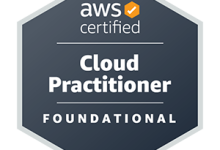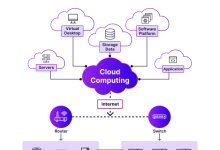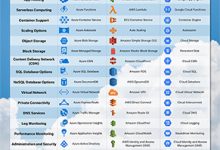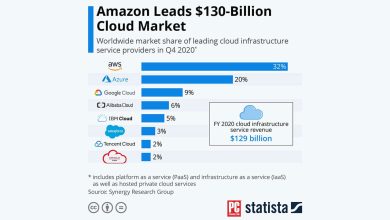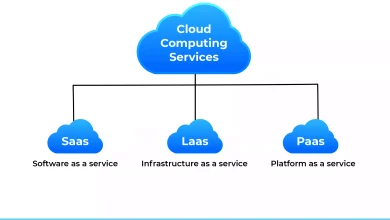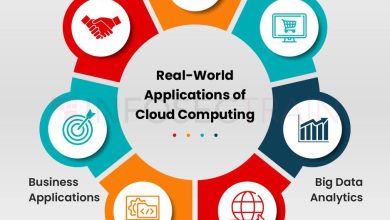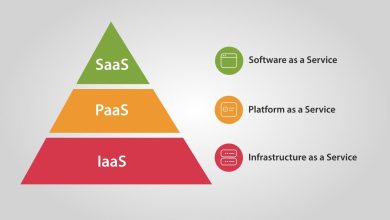cloud computing management
Ads
The Value of Cloud Computing Management
Cloud computing management is a crucial aspect of modern IT operations, allowing businesses to store, manage, and access data and applications on remote servers rather than on-premises hardware. This efficient and cost-effective solution enables organizations to scale resources as needed, reduce infrastructure costs, and improve collaboration and accessibility.
Definition and Scope
Cloud computing management encompasses the administration and optimization of cloud-based resources, including storage, networking, security, and applications. It involves monitoring performance, ensuring data integrity, managing user access, and complying with industry regulations. With the increasing adoption of cloud services across industries, effective management practices are essential for maximizing the benefits of these technologies.
Types of Cloud Services
There are three primary types of cloud services: Infrastructure as a Service (IaaS), Platform as a Service (PaaS), and Software as a Service (SaaS). IaaS provides virtualized computing resources over the internet, PaaS offers a platform for developers to build and deploy applications, and SaaS delivers software applications on a subscription basis. Each type of service has its own management requirements and best practices.
Benefits of Cloud Computing Management
One of the key advantages of cloud computing management is scalability, allowing businesses to easily adjust their resources based on demand. Additionally, cloud services provide redundancy and disaster recovery capabilities, ensuring data availability and security. Collaboration is also improved with cloud-based tools that enable real-time communication and file sharing among remote teams.
Challenges of Cloud Computing Management
Despite its many benefits, cloud computing management also presents challenges, such as data security and privacy concerns. Organizations must address these issues by implementing robust cybersecurity measures, encryption protocols, and access controls. Compliance with data regulations, such as GDPR and HIPAA, is another challenge that requires careful management and monitoring.
Key Considerations for Cloud Management
When implementing cloud computing solutions, organizations must consider factors such as cost, performance, scalability, and data sovereignty. It is essential to choose the right cloud service provider, establish service level agreements (SLAs), and regularly assess and optimize resource usage to ensure efficiency and cost-effectiveness. A well-defined cloud management strategy is critical for successful deployment and operation of cloud services.
Best Practices for Cloud Computing Management
Some best practices for effective cloud computing management include regular performance monitoring, proactive security measures, automated backups, and disaster recovery planning. Training and educating staff on cloud technologies and security protocols are also crucial for maintaining a secure and efficient cloud environment. Collaboration with cloud service providers and industry experts can help organizations stay informed of emerging trends and technologies in cloud computing management.
Strengths and Weaknesses of Cloud Computing Management
Strengths of Cloud Computing Management
1. Scalability: Cloud services allow businesses to easily scale resources up or down as needed, reducing costs and improving agility.
2. Cost-Effectiveness: With cloud computing, organizations can eliminate upfront infrastructure costs and only pay for the resources they use.
3. Accessibility: Cloud-based applications and data are accessible from any location with an internet connection, enabling remote work and collaboration.
4. Redundancy: Cloud services offer built-in redundancy and disaster recovery capabilities, ensuring data availability and business continuity.
5. Flexibility: Cloud computing enables organizations to deploy and manage applications and services across multiple platforms and devices seamlessly.
Weaknesses of Cloud Computing Management
1. Security Risks: Storing data and applications on remote servers poses security risks, including data breaches and cyberattacks.
2. Compliance Challenges: Organizations must comply with data regulations, industry standards, and best practices to ensure data privacy and security.
3. Performance Concerns: Inconsistent internet connectivity or latency issues can impact the performance of cloud-based applications and services.
4. Vendor Lock-In: Migrating data and applications between cloud providers can be challenging, leading to vendor lock-in and limited flexibility.
5. Dependency on Internet Connectivity: Cloud services require a stable and reliable internet connection for access and usage, which can be a limitation in remote or low-connectivity areas.
Cloud Computing Management Information Table
| Cloud Service Type | Definition | Examples |
|---|---|---|
| IaaS | Virtualized computing resources | Amazon Web Services, Microsoft Azure |
| PaaS | Platform for application development | Google App Engine, Heroku |
| SaaS | Software applications on subscription basis | Salesforce, Microsoft 365 |
Frequently Asked Questions about Cloud Computing Management
1. What is Cloud Computing Management?
Cloud computing management involves the administration and optimization of cloud-based resources for businesses and organizations.
2. How does Cloud Computing Management benefit organizations?
Cloud computing management provides scalability, cost-effectiveness, accessibility, redundancy, and flexibility for organizations.
3. What are the main challenges of Cloud Computing Management?
The main challenges of cloud computing management include security risks, compliance challenges, performance concerns, vendor lock-in, and internet dependency.
4. How can organizations ensure the security of their data in the cloud?
Organizations can ensure data security in the cloud by implementing robust cybersecurity measures, encryption protocols, access controls, and compliance with data regulations.
5. What are the best practices for effective Cloud Computing Management?
Best practices for cloud computing management include regular performance monitoring, proactive security measures, automated backups, disaster recovery planning, staff training, and collaboration with cloud service providers.
6. How do organizations choose the right Cloud Service Provider?
Organizations should consider factors such as cost, performance, scalability, data sovereignty, and SLAs when choosing a cloud service provider. It is essential to evaluate the provider’s reputation, security practices, and support services.
7. What are the key considerations for successful Cloud Computing Management?
Key considerations for successful cloud computing management include cost optimization, performance monitoring, scalability planning, security measures, data compliance, and staff training. It is important to establish a clear cloud management strategy and regularly review and update it based on changing requirements and technologies.
Encouraging Action: Embracing Cloud Computing Management
As businesses continue to embrace digital transformation and rely on cloud technologies for their operations, effective cloud computing management becomes increasingly essential. By understanding the strengths and weaknesses of cloud management, implementing best practices, and staying informed of industry trends, organizations can optimize their cloud resources, enhance security, and improve productivity. It is crucial for businesses to take proactive steps in managing their cloud environments to maximize efficiency, reduce risks, and drive innovation.
Are you ready to harness the power of cloud computing management for your organization? Take the first step towards improving your IT infrastructure, enhancing collaboration, and unlocking new opportunities by investing in cloud management practices that align with your business goals and objectives. Start your cloud journey today and reap the benefits of a flexible, scalable, and secure cloud environment that empowers your workforce and drives success.
Remember, the future of IT lies in the cloud, and effective management is the key to unlocking its full potential. Embrace the possibilities of cloud computing management and transform your business into a digitally agile and resilient organization poised for growth and innovation.
Take action now and elevate your business with cloud computing management!
Disclaimer
This article is intended for informational purposes only and does not constitute professional advice. Readers are encouraged to consult with IT professionals and industry experts for specific recommendations and guidance on cloud computing management practices tailored to their individual needs and requirements. The information provided in this article is based on current industry trends and best practices, but individual results may vary based on organizational considerations and circumstances.
